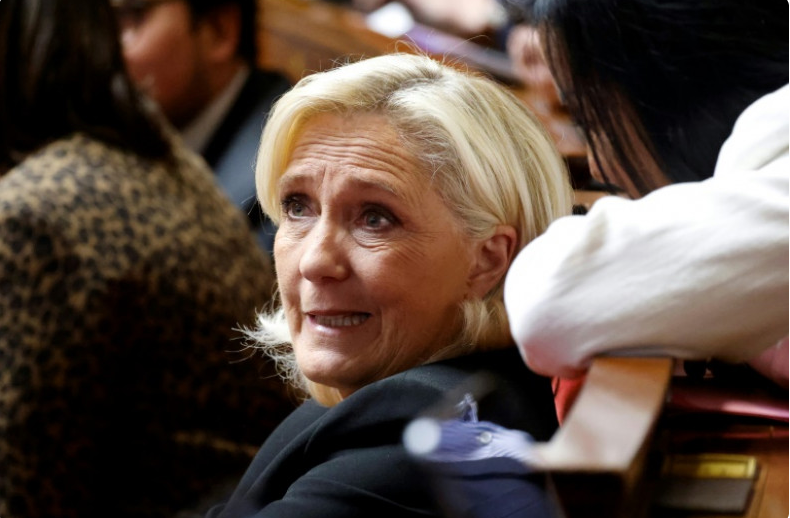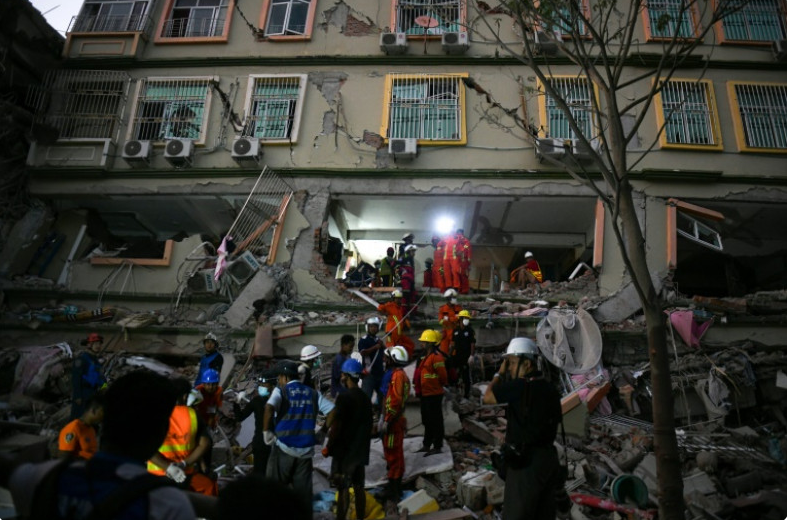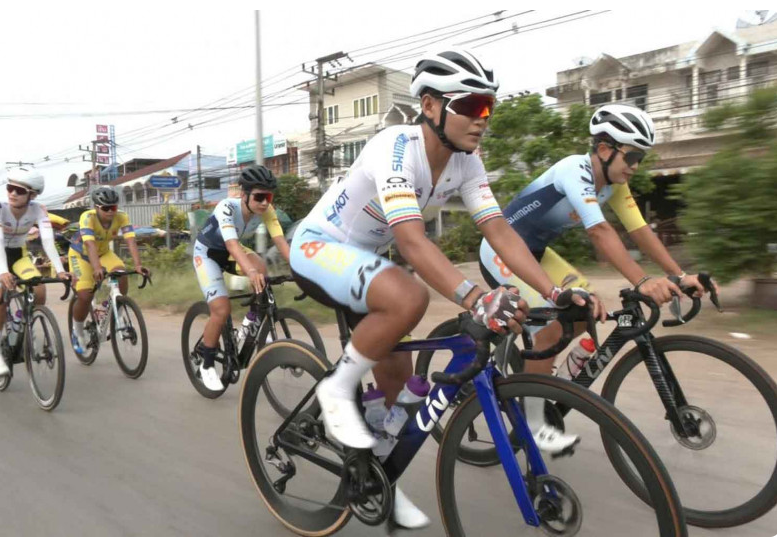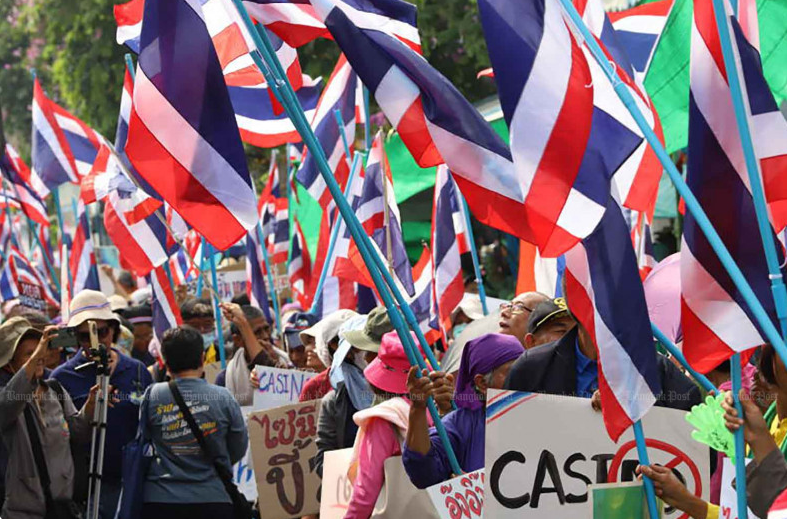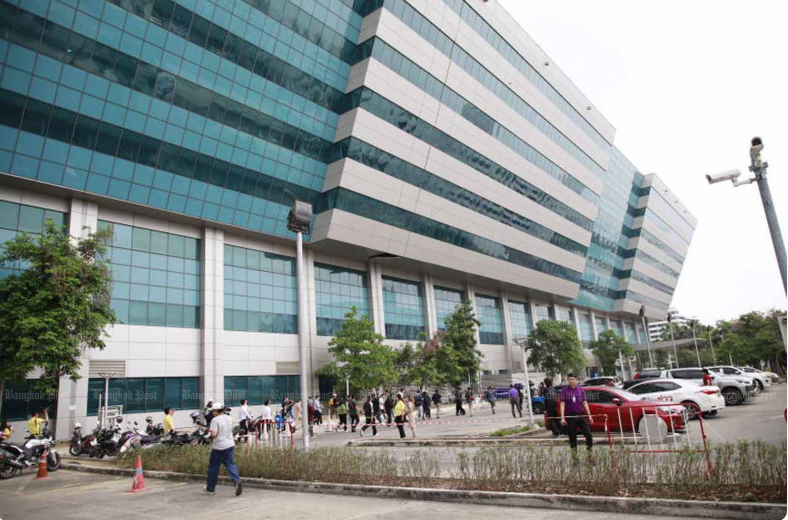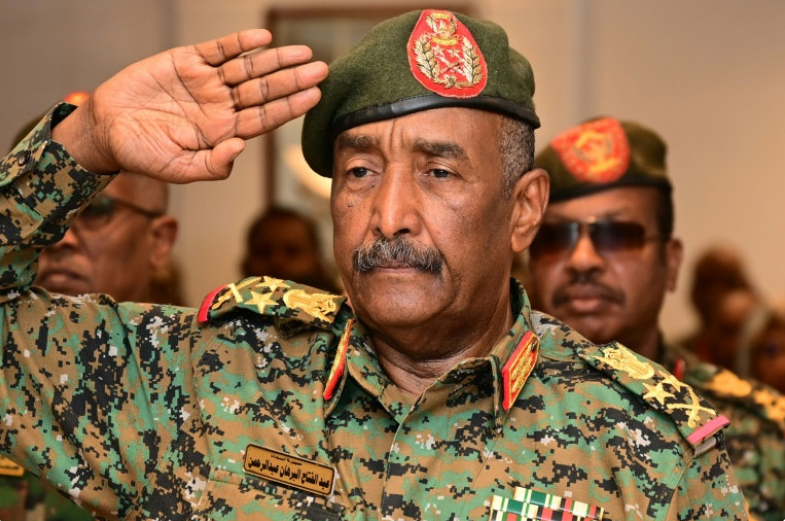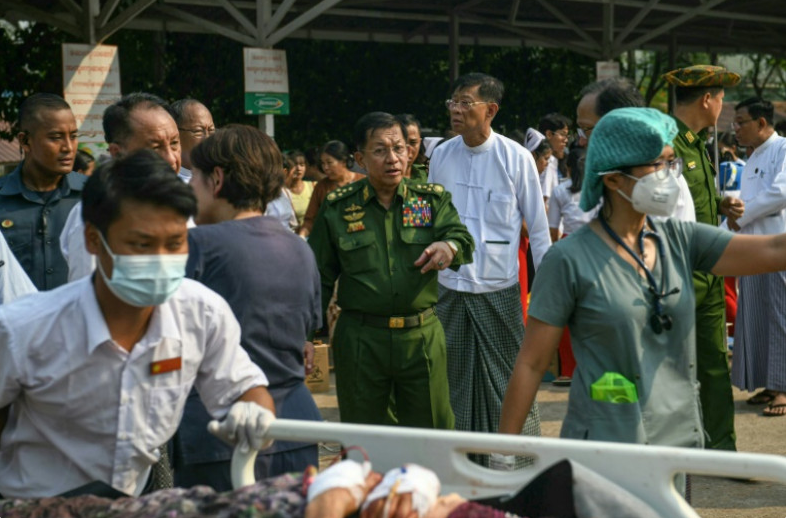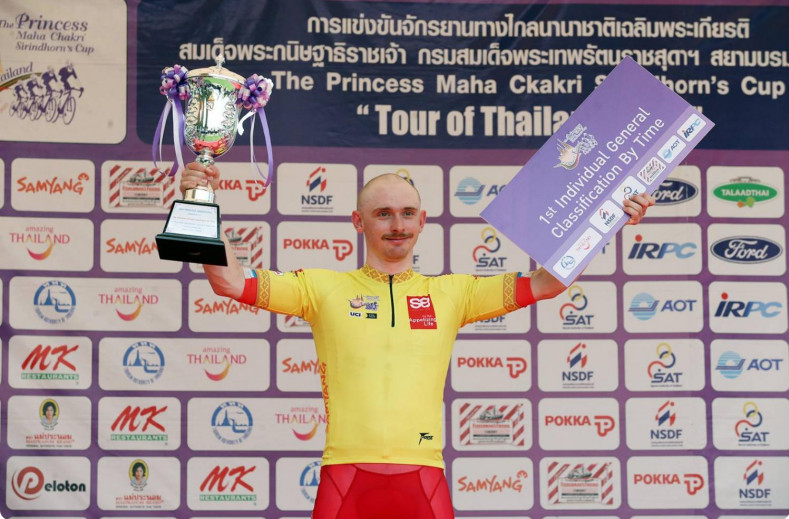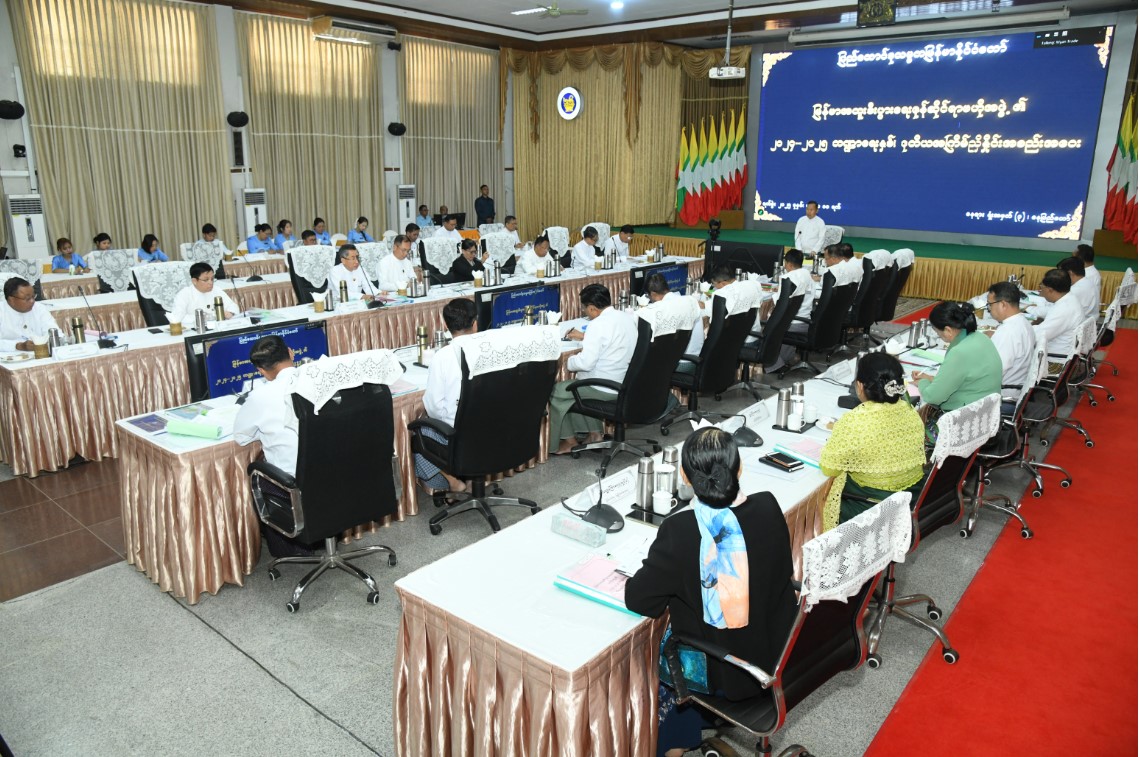SAC Vice-Chairman Deputy Prime Minister Vice-Senior General Soe Win attends second meeting of Myanmar Special Economic Zone Central Committee for 2024-2025 FY
March 11
The Chair of the Central Committee Vice-Chairman of the State Administration Council Deputy Prime Minister Vice-Senior General Soe Win delivered an address online to the second coordination meeting of the Myanmar Special Economic Zone Central Committee in Nay Pyi Taw this afternoon at the conferencing hall of the Ministry of Commerce for the 2024-2025 financial year.
Chief Minister for Yangon and Taninthayi regions and Rakhine State also attended the meeting while the Central Committee members Union ministers, deputy ministers, chairmen of management committees of the Thilawa, Kyaukpyu and Dawei special economic zones, directors-general and officials attended together with them through video conference.
At the beginning, the Vice-Senior General gave a speech that the special economic zones should be implemented according to the provisions of the Myanmar Special Economic Zone Law and bylaw which were enacted in 2014 and those must be coordinated with the present situation of the State.
This highlights the importance of creating special economic zones from the given economic and political perspectives based on geopolitics.
Therefore, central committee members need to review the implementation of the Thilawa SEZ and Kyaukpyu and Dawei SEZs by combining with political and economic situations.
The economic aims of the State Administration Council are threefold:
Out of these, one of the main directions is to use the growing momentum of the economy as a driving force, which will provide support for MSME (Micro, Small, and Medium Enterprises) industries and expand the export sector.
Southern special economic zones must also adopt this direction of their work.
All even use special economic zones and exclusive zones in each country, but the law and regulations differ according to the governing bodies. In the same way, to attract investments in Myanmar’s special economic zones, according to the country’s policies, certain incentives, tax exemptions and promotional activities are necessary. These have already been defined in Myanmar under the 2014 Special Economic Zone Law and rules.
In making investment at special economic zones of Myanmar, getting the advice of the Prime Minister and promoting the volume of export are the main functions in the implementation of investment task.
In this context, we need to promote investment to SEZ focusing on the manufacturing of export oriented goods.
Export volume at Thilawa SEZ for the period from April to January in the 2024-2025 financial year, reached US$-163.466 million, with import volume for the same period worth US$-599.284 million, bringing its total trade volume to US$-722.75 million. But this amount is less than that of the SEZs of neighbouring countries.
In order to make their own SEZs better and try to minimize the deficit of export and import volumes as much as possible, officials as well as officials of the SEZ management committees are obliged to review SEZ conditions of surrounding countries.
By the same token, for the Kyaukpyu Special Economic Zone and Dawei Special Economic Zone, it is necessary to identify and invite entrepreneurs who focus on producing for export to strengthen the country’s exports.
An examination of present raw material imports and exports of the Thilawa Special Economic Zone reveals that among imported raw materials are agricultural component machineries, electronic device production equipment, materials used in car spare part production and can manufacturing.
Likewise, major exports are garments, surgical gloves, electronic machinery, pharmaceuticals, and loudspeakers. Export sector Export must be enhanced above current levels under such initial rules.
Also, weeding in the import sector is a must, as we need to engage MSME businesses to make an understanding of how much of the imported material they can substitute with indigenous production.
The aim is direct to، reduce out flow of foreign currency and increase exports, through import substitution and engaging local MSMEs. Import-substituting goods in MSME enterprises should be produced with the highest quallity.
There are two new zones under the Thilawa Special Economic Zone, Free Zone and Promotion Zone.
However, the July Ventures Free Zone is open to the public, businesses there have no foreign currency difficulties, while those operating in the Promotion Zone do; it all depends on the circumstances.
The relevant ministries and the Foreign Exchange Supervisory Committee reportedly are working very hard on some of these problems.
MSME products should be developed which can substitute for a large number of imports, thereby making imported raw material usage in the manufacture of these products expensive, and limiting their use for export purposes only.
To avoid spending foreign currency for now, many MSME goods must be manufactured, which will limit the dependency on imported raw materials.Such a manufacturing process will not only save the foreign exchange but will also create employment.
For the period of 2024-2025, income from MSME joint projects and import replacement products is expected to achieve for US$ -6.0596 million and for more than Ks-51 billion.
We must encourage MSME agencies and state and regional officials to be more assertive to ensure MSME products are supplied in the import substitution sector of special economic zones, as per the policy set by the Head of the State. Statistics of tax collection in January 2025 indicate the total tax revenue was Ks-935 million while commercial tax was over Ks-9 billion and advance income tax was Ks-2 K 2 billion, and income tax amounted to Ks-2. 68 billion. I asked the organization Operating One Stop Service to follow thoroughly tax revenue, state revenue, full tax revenue and prevention of corporate conceit.
These special economic zones are being opened to usher in the national economyю MSMEs are crucial for this process and are an important part in the establishment of these zones. They are expected to contribute to the considerable advantages of the country’s economy, and consistent work is needed to ensure the success of the zones.
The most important requirement for building special economic zones and industrial zones is enough electricity.
Thus, it has been proposed to set up the solar power plants separately in the Thilawa Special Economic Zone. Although it was at first just a few hundred kilowatts of capacity, it was effective enough and the effort scaled. The latest data shows that once fully installed, the production capacity will be close to 16 MW. The Tatmadaw has also set up a 20-megawatt solar plant, which it anticipates will break even in three and a half years.
This is not just financially sensible; excess electricity can be sold back to the national grid. It is advisable for relevant companies and business owners to utilize this means, and to write similar discussions into the planning of future special economic zones.
In addition, discussions on Kyaukpyu Special Economic Zone continued.
On November 5, 2020, Myanmar signed a Concession Agreement for the deep-sea port project in the Kyaukpyu Special Economic Zone.
On 26 December 2023, in Naypyidaw, an Addendum to this agreement was signed by the project company and the Kyaukpyu Special Economic Zone Management Committee which sets the Long Stop Date to June 25, 2025. This means that everything must be done two months prior to this date.
This working committee is already at work in this direction and other committees involved will also be urged to meet the tasks assigned to them within the deadline.
Kyaukpyu Special Economic Zone offers great geopolitical, economic and political significance.
For the country, it is very important and also extremely beneficial for both local residents and the country. Additionally, the successful implementation of the deep-sea port project will promote participation in the Myanmar-China Economic Corridor; it will also enhance bilateral cooperation in the construction of the Belt and Road Initiative.
Discussions have centered around the Dawei Special Economic Zone and the dissolution of the SPV (Special Purpose Vehicle).
This matter must be coordinated and concluded between Myanmar, Thailand and Japan.
The Chairman of the State Administration Council Prime Minister attended the recent visit of a delegation to the Russian Federation and Belarus.
major opportunities associated with the Dawei Special Economic Zone were identified.
Progress is supposed to start picking up soon.
As a result, until appropriate preparations are made at the top to ensure that investors can seamlessly and efficiently execute their operations.
Appropriate authorities play their role now, end of story.
The Vice-Senior General urged that we should be persistent and proceed with legal issues smoothly with relevant experts and procedures, as Italian-Thailand issues are clear. He emphasized that a win-win solution for everyone, including investors, should be pursued.
This is the second meeting of the FY 2024-2025, the FO vice-Senior General called on the responsible management committees to report progress from the last meeting and upcoming plans.
He added that only by preparing for the future and taking specific actions can businesses connect with investors at any time. He also urged the central members of Myanmar’s Special Economic Zones to meet and propose plans on sectorspecific progress.
During the visit of the Prime Minister, at the event, Union Minister for Investment and Foreign Economic Relations, Dr Kan Zaw, Secretary 1 of the Central Working Committee for Myanmar Special Economic Zone discussed investment matters for the Myanmar Special Economic Zones, facts on the Dawei Special Economic Zone, Myanmar Special Economic Zone.
Next, Secretary 2 of the Central Working Committee for Myanmar Special Economic Zone, Union Minister for Commerce, U Tun Ohn, briefed on the implementation status of the decisions of the first meeting of the Myanmar Special Economic Zone for the 2024 – 2025 FY.
Then the orders submitted to the Central Working Committee for Myanmar Special Economic Zone meeting and obtained the approval were read out by the chairmen of the management committees of Thilawa Special Economic Zone, Kyaukpyu Special Economic Zone and Dawei Special Economic Zone.
Thereafter, Union Ministers and the attendees discussed and provided their recommendations and concerns regarding the functioning of special economic zones in their sectors.
Afterward, the Secretary of the Central Working Committee for Myanmar Special Economic Zone presented and approved the draft resolution of the second meeting of the Central Working Committee for Myanmar Special Economic Zone for 2024-2025 FY.
After that, the Chairman of the Central Working Committee for Myanmar Special Economic Zone, Vice Chairman of the State Administration Council, Deputy Prime Minister clarified and coordinated the presentations, made a concluding speech and adjourned the meeting.

